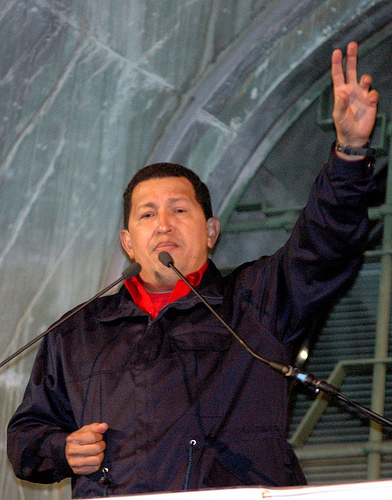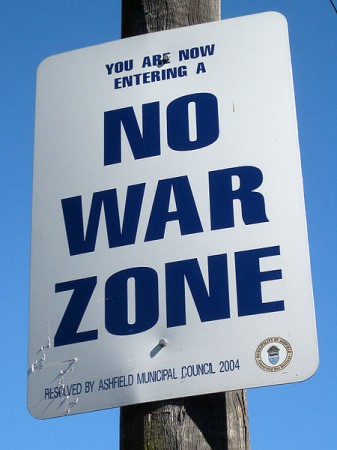
Last December in Copenhagen, the Northern and Southern Hemispheres were at odds over how climate protection and economic development should be linked.
To make it short, the North argued that southern countries should develop themselves in a sustainable and ecological way. The South replied vehemently by claiming their right to development and their right to do it the same way the North did.
Apparently, Ecuador got a head start in understanding the concerns of the West and decided to put responsibility in practice. The country started the project Yasuni ITT in 2007. This project implies a conceptual break in the understanding of development and climate change.
The idea is pretty simple. Ecuador will not exploit the 850 millions of oil barrels that lie below the Yasuni forest for the sake of world heritage and climate change.
The rest of the world, mostly western countries, should in exchange contribute financially to a fund that will be internationally monitored and that will allow Ecuador to diversify its energy sources. The fund will amount to half of the benefits that Ecuador could make if it decided to exploit the oil, which is approximately €6 billion.
The project is supported by various Nobel Prize Laureates such as Mohammed Yunus, Desmond Tutu and Al Gore. Prominent environmental personalities are also on board.
This initiative is revolutionary for more than one reason.
- It acknowledges the notion of ecological world heritage. The Yasuni forest not only benefits Ecuador. It’s also a reserve of biodiversity for the whole planet.
- The project forces western countries to face up to their responsibilities. European and North American countries need to join the project if they want to remain credible. Unfortunately, only a few European countries, Germany, Norway, Spain and Switzerland, support the initiative.
- It creates an example for the southern hemisphere. By renouncing oil exploitation, Ecuador acknowledges the responsibility of southern countries in the fight for climate change. It sets an example of ecological development that other countries could use. Being host of the most natural resources, the southern hemisphere has surely something to learn from the Ecuadorian experiment.
- The project proposes to add a third generation of carbon bonds that could be traded on the ‘carbon market.’ This new generation (G3) of bonds would be given to countries that avoid or prevent environmental pollution of the atmosphere. This new concept challenges the previous understanding of carbon bonds that so far were only available for countries or companies that reduce their level of pollution. By rewarding countries and companies that prevent pollution, this new system would move away from the “license to pollute” that has been created by the Kyoto Protocol and would ensure a more positive understanding of the carbon market.
So, why has such an alternative project not been given a greater public attention worldwide? Why only a few European countries are supporting it?
I think it is time for the West to put responsibility in practice.




